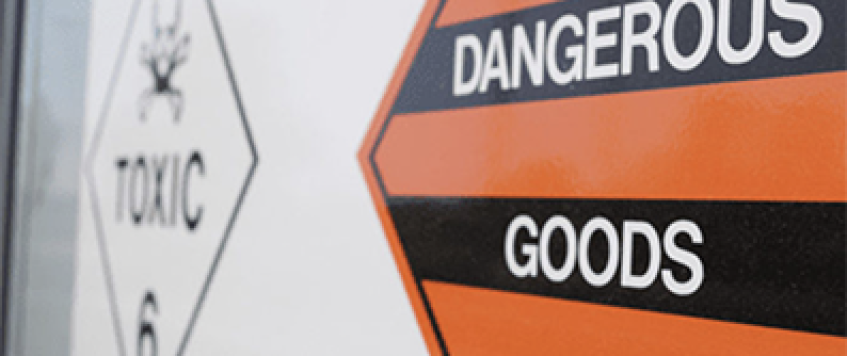-
09
Feb
What Makes My Cargo Dangerous?
Most organisations and businesses ship products, equipment and test samples, even just for operational purposes, let alone to customers.
And, when it comes to shipping even just basic test equipment or battery-operated technology components – well surprise, many will classify as a dangerous good and require specific packaging, labelling and shipping in accordance with international or local safety legislation, which tends to change and evolve frequently.
Steve Turner, Co-founder and Head of Logistics at APG Freight comes with over 35 years of industry experience specialising in hard-to-ship and dangerous goods, says, “The regulations, legislation and safety perimeters around different classes of dangerous goods are constantly updating, evolving and changing. And not just for flammables or corrosive fluids, toxic chemicals or engine parts, but everyday items like aerosols, gadgets and testing equipment that might have chemical compounds in them”.
Year after year, things go wrong and cargo mishaps make headlines, in response to these regulations around the packaging and transport of sensitive or potentially dangerous goods are changed to mitigate risk and increase safety. After all, you don’t want to have two chemicals that can turn into a force when combined be shipped inside the same container and burn a hole into a container ship while out at sea, nor do one would want to see lithium batteries suddenly burst into flames inside the passenger luggage compartment in mid-air. There are rather valid reasons for classifications, gradings and relevant packaging rules that need to be adhered to in order to keep your cargo safe and everything around it too, be it other goods or people and transport vehicles.
“The ever-changing landscape of dangerous goods shipping, and most importantly knowing what sort of goods are identified as dangerous and which can be shipped on cargo-only vessels and which can join a plane-load of passengers is the hard bit about it all. Meeting the packaging requirements in line with classifications is easy, but knowing which apply is the critical bit where most lay people fail,” says Turner.
Spanning a career in dangerous goods freight across five industry-leading companies, over three decades and now spearheading APG Freight’s logistics department, Steve Turner has seen it all – the good, the bad and unfortunately the ugly too. That is why he co-founded the fast-growing, industry leading and meanwhile award recognised freight operations together with long-time freight expert and APAC specialist of three decades Ambrose Gorogo.
The two-man team have led numerous departments specialising in dangerous goods but wanted to step out together and build a team of logistics professionals around them. In 2018 they joined forces and launched APG Freight, which soon became a major player in freight forwarding and handling of all sorst of cargo and goods throughout greater Brisbane as a gateway to the APAC region and the rest of the world.
Fast-forward five years and the Tingalpa-based specialist freight firm has grown 10x more than once, expanded its professional and expert-trained team by 240% and has recently been recognised by becoming a finalist in the Australian Business Champion Awards. More importantly than that, they work with all leading major transport providers and airlines globally, are at the leading edge of global freight, and work with some of the biggest organisation across mining, testing, medical, engineering, government agencies, overseas aid and all sizes of businesses – internationally.
So, whatever your products, service equipment or cargo might be, you can entrust it to the APG team and know that they will provide the right advice, proper handling and fastest, most cost effective way to get it from point A to pint B safely, with total peace of mind for you.
